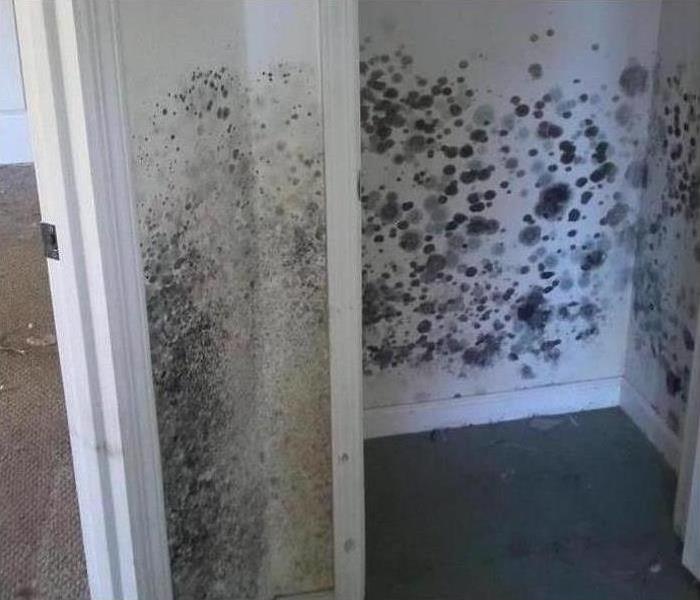How To Find Out If You Have Mold Coverage
10/20/2021 (Permalink)
How to Determine If You Have Mold Coverage
If you’re dealing with extensive fungus growth in your home, you may be wondering if you have mold coverage. The answer, unfortunately, is not so straightforward. As concerns about black mold have grown in recent years, many insurance providers have started including mold exclusions in their policies. These exclusions specifically state that mold remediation will not be covered. Other providers may include mold insurance, but place a cap on how much they are willing to pay for remediation services in Eason, OK. In most cases, however, it depends on the cause of the mold growth.
What Is Usually Covered
Many insurance policies will cover mold damage if it is a direct result of issues covered by the policy. For example, insurance usually covers burst water pipes, which may result in a mold problem. If you have coverage for your sump pump or a backed up sewer, then your policy may also cover fungus growth that results from these sudden, catastrophic events.
What Is Usually Not Covered
Unfortunately, mold is often a result of ongoing problems related to maintenance or landscaping and damage from these types of issues are usually not covered by insurance policies. If your mold problem is a result of the following, it is almost certainly not covered by your policy.
- High humidity
- Poor ventilation
- Drainage problems
- Leaky roofs and windows
- Groundwater seepage
- Leaking supply lines
- Flooding
If you have specifically purchased flood insurance, you will need to check it for mold exclusions and caps. Your flood insurance provider may offer you the option of paying extra for mold damage coverage.
What To Do
The best thing you can do is perform regular maintenance and keep your home well-ventilated to avoid fungus growth in the first place. If you do develop a mold problem, you will need to read your policy carefully to see if you can get coverage for mold remediation services in Eason, OK. Discuss your options with an insurance claims adjuster or SERVPRO representative.





 24/7 Emergency Service
24/7 Emergency Service
